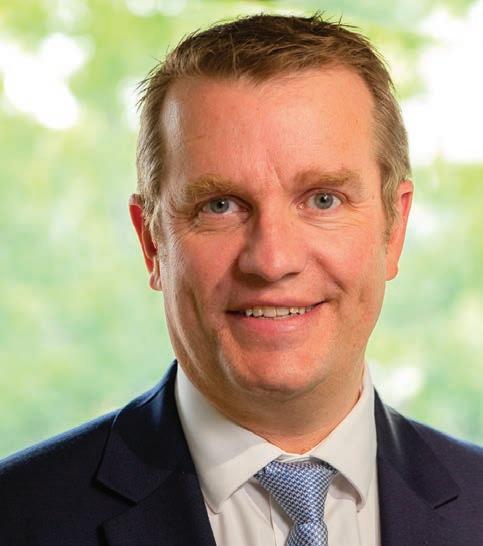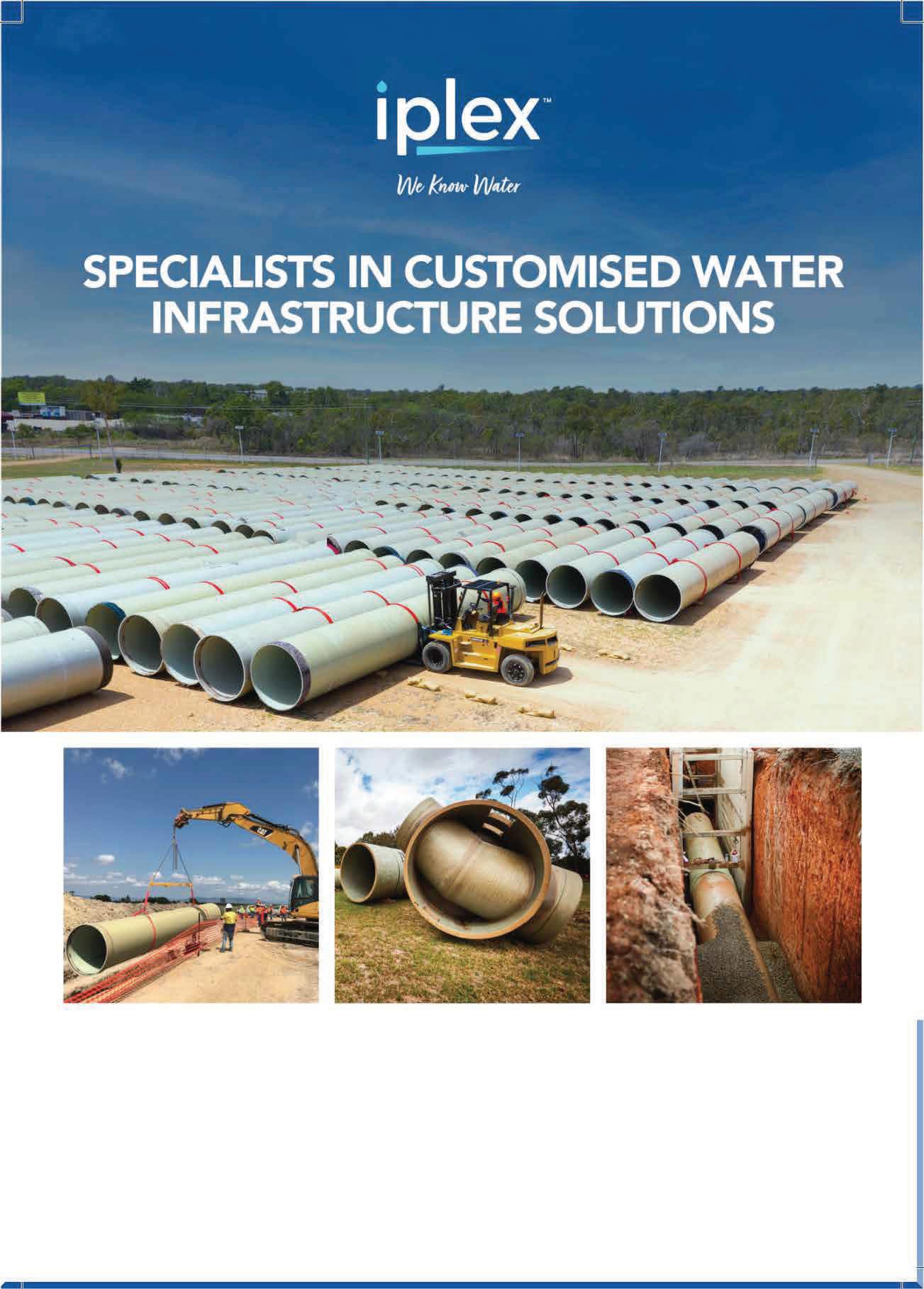
4 minute read
Water, gas and electricity are interconnecting in a whole new way
By David Norman, CEO of Future Fuels Cooperative Research Centre
Future Fuels Cooperative Research Centre and its broad industry-led community is at the centre of so much new understanding and capability. While it is playing its key role of new knowledge delivery on the function of clean fuels such as hydrogen and biomethane, it also offers a vehicle for wider and deeper investigation of interrelated aspects of the energy transitions, now occurring at speed everywhere we look.
Future Fuels CRC CEO David Norman.
The Australian Pipeliner’s theme this edition is water and rightly the industry has previously seen this as a distinct sector from natural gas and other fuels. But the more research we do into the future of fuels, the more we see the complete interconnection of water, gas and electricity in ways many of us have only just started to understand.
Most professionals in the industry would be used to the processes of electricity production in gas-fired power stations, water being managed in upstream gas production, used in coal mine-site dust suppression or in the cooling for thermal power stations. But the future has the potential for whole new levels of interconnection.
The two green gas projects that are already connected in Adelaide and Sydney are interconnected nodes of the combined gas, electricity and water networks. They have the capability now to turn electricity and water into renewable hydrogen gas to use in the gas network and future plants could also have the capability to turn excess stored hydrogen back into electricity to manage peaks back in the electricity network.
This new industry will require whole-system thinking, taking into account the integrated advantages and constraints that each of the three sectors offer us.
Basic chemistry means you need at least 9 litres of water to produce each kg of renewable hydrogen gas, plus water that is used as part of the water purification or cooling processes. Although this would create a new demand for water in Australia, it has the opportunity to use water that currently goes to waste. For example much of the clean, treated water from Australia’s sewage processing plants is not reused. And as ageing thermal power plants are phased out, their cooling water and dust suppression supplies will increasingly become available for other uses. Renewable gas can make use of this under-utilised resources.
Getting to this new industry means much new engineering knowledge and Future Fuels Cooperative Research Centre's (CRC) community is hard at work making that a reality. In just the last few months we’ve delivered the following research that industry needs to push forward, including: • Underground storage options for hydrogen across Australia, • Techno-economic modelling of the different fuel production processes, • Solar photocatalytic hydrogen production, making hydrogen directly from water and sunlight, • Efficient conversion of hydrogen to future fuels, such as methanol, • Developing the social license and acceptance of future fuels, • Deliberative engagement processes on the role of future fuels in the future low-carbon energy mix in Australia, • Identifying drivers of policy and practices of using future fuels in the built environment, • Gas fitting practices for future fuels, • Future proofing plastic pipes, • Metering and gas quality monitoring of future fuel blends, • Development of efficient and effective methodologies for the abandonment of pipelines.
Coming up in the next few months we expect
to share more research on transportation and storage, bio-methane in gas network, appliance performance with blends of hydrogen and natural gas, and our latest research on hydrogen in plastic and steel pipes.
Also importantly this month, the APGA is launching Public Safety in the Pipeline Industry: An Engineering Practice Guide. The practice guide was created with Future Fuels CRC and supports engineers who work in design and operation of high-pressure energy pipelines and associated facilities, and to those who employ those engineers. This practice guide will help to drive and further improve public safety right at the heart of the pipeline profession. I would encourage everyone to familiarise themselves with this great work and get involved in rolling it out in their organisations. Whilst it is just one of the nearly hundred different reports being produced for industry by Future Fuels CRC at this time, it again reinforces that transferring this knowledge and implementing or embedding it into action in industry is the next crucial step on our journey.
You can find the latest on all Future Fuels CRC research at www.futurefuelscrc.com











